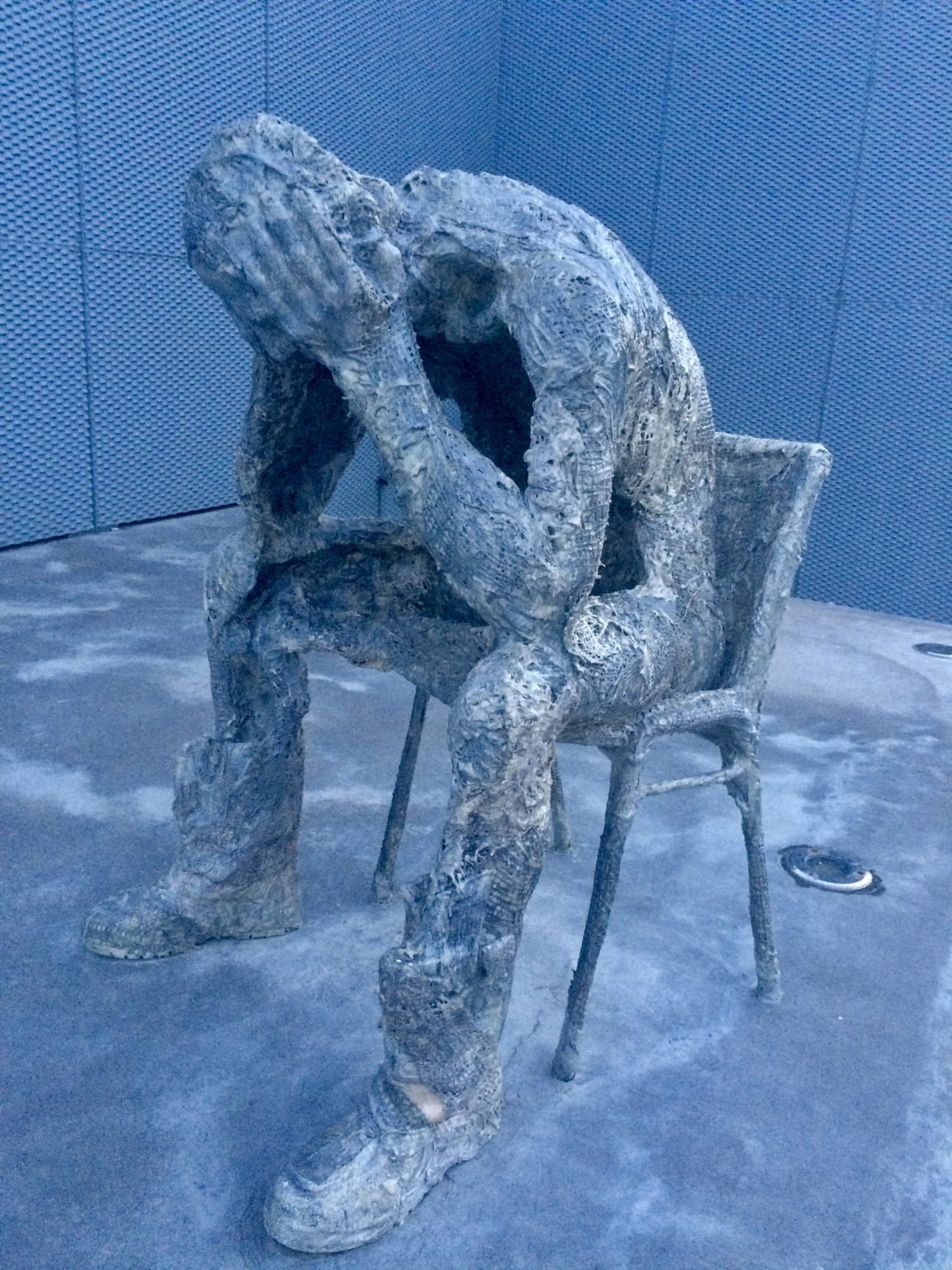
08 Aug Learning how to see a bad day coming (and what to do about it).
Yesterday as I was chopping a pepper for tea, I cut my finger.
A small but deep incision in the tip of the third finger on my left hand.
I put a plaster over it but it wouldn’t stop bleeding. I tried to continue with the food prep but was soon stopped by the throbbing and the blood seeping out either side of the bandage.
Thankfully I had someone who could take over, and a friend nearby with the know-how to re-bandage my cut.
Beth took off my hastily applied band-aid and searched through the three half-empty first-aid kits in the drawer. She took some gauze and a padded dressing and fashioned a compress for my finger. She applied pressure while she taped the dressing in place.
Today, twelve hours later, she removed the dressing. The bleeding has stopped and my finger looked like a wrinkled prune. She told me I must not use it (I probably shouldn’t be typing – although I am doing so with 9 digits not 10) and I need to leave it open to the air so the wound could dry out and have a chance to scab over.
This tiny cut has affected everything. It still hurts (a little) and I have been frustrated as I haven’t been able to do half the jobs I regularly take for granted. Like dressing. Or showering. Or making lunch.
And this is a tiny cut. A minor inconvenience.
But it can be seen. And therefore allowances have been made because of it. I have changed my behaviour accordingly. It has been tended to and looked after.
If only invisible illnesses were treated in the same way.
When I was diagnosed with depression and anxiety I found I hard to explain. Back then my illness was hidden and rarely acknowledged. It was difficult to ask for help – what would I even ask for?
I didn’t know.

Even after diagnosis I often let myself get to full-blown anxiety central before I would acknowledge I was not coping. And by then there was no time for triage, it was straight to bed-rest and isolation: these were the only things that would help.
But what if we acknowledged our mental illness straight away, before it got to the intensive care stage?
What if we saw the rising adrenalin, or sense of creeping despair as what it really is: an early warning sign – the body’s way of telling us to slow down and look after ourselves.
What if instead of ploughing on regardless, thinking distraction and hard work and responsibility could mask the rising tide of dread, we recognised it straight away and cancelled some meetings/ bought some ready-meals/ organised some child-care/ went for a long walk?
What if we valued ourselves and our mental health enough to do this?
Maybe then we would not be living with despair.
Maybe then comparison and self-criticism wouldn’t have the loudest voice.
Maybe then we would build volition and resilience.
Maybe then we wouldn’t teach our children that self-reliance, capacity and productivity are of highest value.
Maybe then we would learn that nothing is more important than living in the truth that you are loved and seen and valued.

If you are battling today, if anxiety is knocking on the door, if you have the metallic taste of adrenalin in your mouth, if you are wondering how you will survive the day, maybe right now is the time to ask for help, to text a friend or family member, to cancel some plans.
Maybe now is the time to let yourself off the hook.
We can only love others fully once we have learnt to fully love ourselves.
Start with you.
Love you first.

If you enjoyed this blog post why not subscribe to my mailing list? (no spam or nonsense – ever, promise!).
Subscribe today and receive a week long meditation, direct to your inbox, a series to bring help and hope.
Sign up today and start tomorrow with Seven days of Hope.
Jess @ Just Another Moment
Posted at 07:34h, 30 OctoberThank you for this post. It would make such a big difference on our mental health if we would do this, we all need to learn that it’s okay to put ourselves first before we’re visibly crumbling to the world.